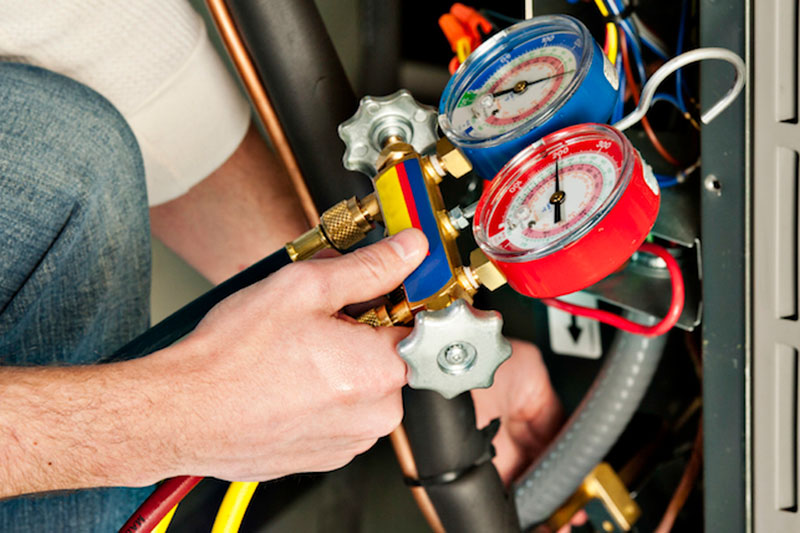
You might not think often about how your air conditioner works, but it needs refrigerant to keep your house fresh. This refrigerant is bound by environmental regulation, because of the chemicals it contains.
Subject to when your air conditioner was put in, it may use R-22, R-410A or R-32 refrigerant. We’ll review the differences and which air conditioner refrigerants are being phased out in Bartlesville, plus how these phaseouts impact you.
What’s R-22 and Why Is It Phased Out?
If your air conditioner was put in before 2010, it likely contains Freon®. You can find out if your air conditioner contains it by contacting us at 918-333-0376. You can also look at the name plate on your air conditioner condenser, which is located outside your house. This sticker will contain info on what kind of refrigerant your AC needs.
Freon, which is also referred to as R-22, has chlorine. Scientists consider R-22 to be bad for the earth’s ozone layer and one that contributes to global warming. The Environmental Protection Agency, which manages refrigerants in the United States, outlawed its production and import in January 2020.
Should I Replace My R-22 Air Conditioner?
It depends. If your air conditioning is running properly, you can continue to use it. With yearly air conditioner maintenance, you can expect your air conditioning to operate around 15–20 years. However, the Department of Energy says that replacing a 10-year-old air conditioner could save you 20–40% on yearly cooling costs!
If you don’t install a new air conditioner, it can create difficulties if you need air conditioning repair in the future, specifically for refrigerant. Repairs can be higher-priced, since only small quantities of recycled and reclaimed R-22 is on hand.
With the end of R-22, many new air conditioners now rely on Puron®. Also known as R-410A, this refrigerant was made to keep the ozone layer healthy. As it calls for a varying pressure level, it doesn’t work with air conditioners that need R-22 for cooling.
However, Puron still has the possibility to contribute to global warming. Because of that, it may also eventually be ended. Although it hasn’t been mandated yet for residential air conditioners, it’s anticipated sometime this decade.
What Refrigerant Will Replace R-410A?
In preparation of the discontinuation, some manufacturers have begun using R-32 in new air conditioners. This refrigerant rates low for global warming likelihood—approximately one-third less than R-410A. And it also reduces energy use by approximately 10%, according to the Intergovernmental Panel on Climate Change’s Fourth Assessment Report. That’s savings that could be passed on to you through your utility bills.
Farris Heating & Air Can Assist with All Your Air Conditioning Needs
In brief, the modifications to air conditioner refrigerant probably won’t affect you a whole lot until you need repairs. But as we discussed previously, refrigerant-related repairs can be pricier because of the restricted quantities that are accessible.
Aside from that, your air conditioner frequently stops working at the worst time, often on the hottest day when we’re receiving many other requests for AC repair.
If your air conditioner uses a discontinued refrigerant or is getting old, we recommend upgrading to a new, energy-efficient air conditioner. This delivers a stress-free summer and may even reduce your electrical bills, especially if you select an ENERGY STAR®-rated system. Plus, Farris Heating & Air offers many financing options to make your new air conditioner work with your budget. Contact us at 918-333-0376 to get started today with a free estimate.
